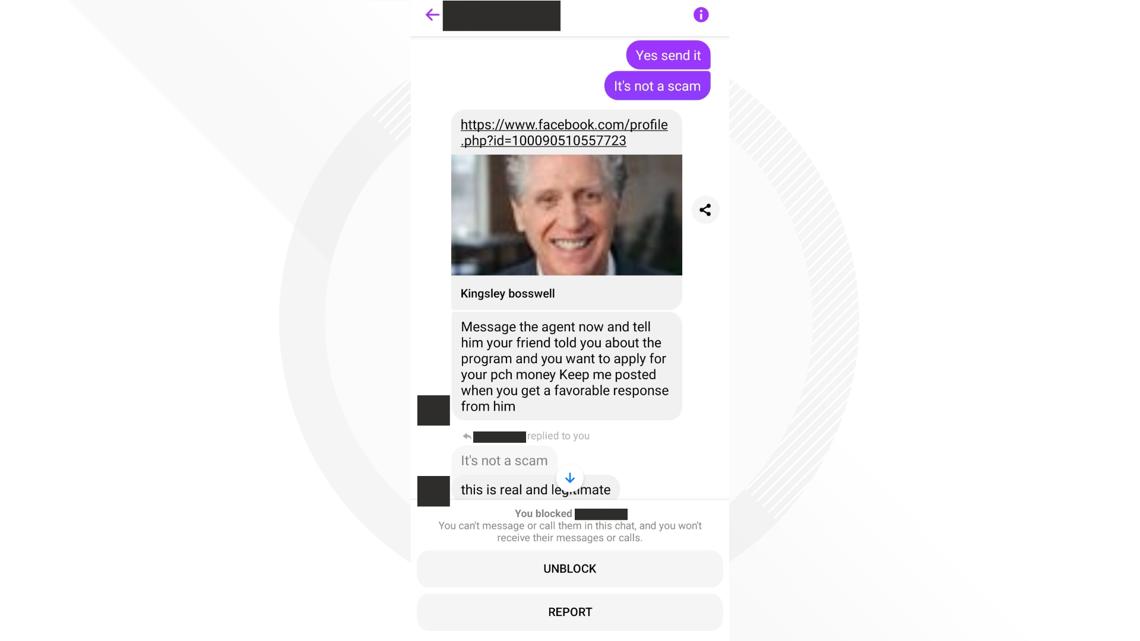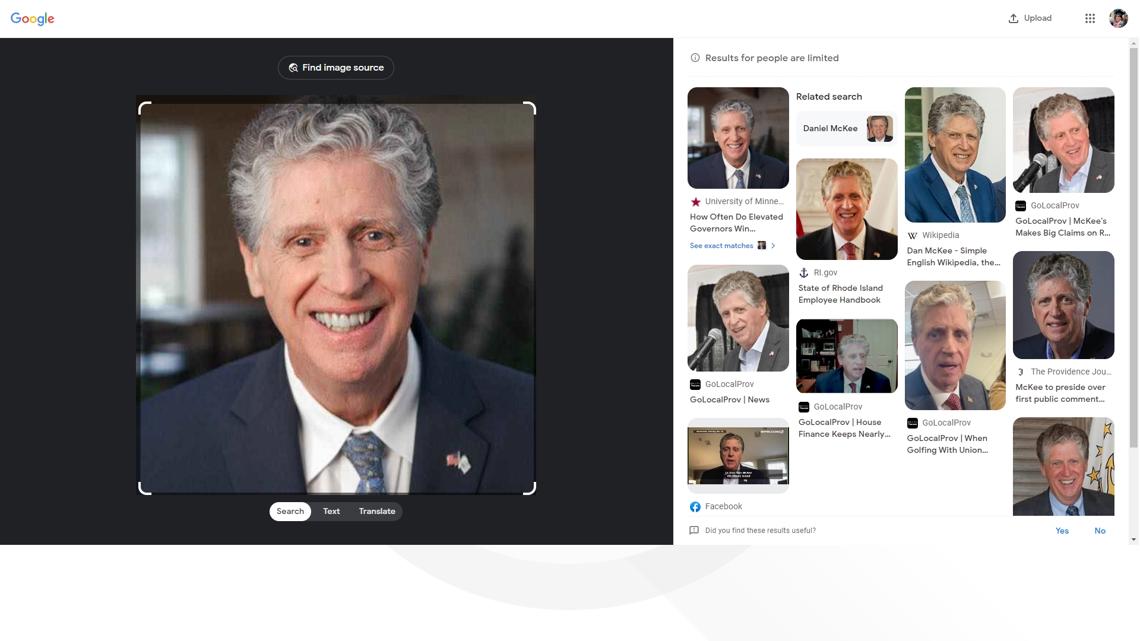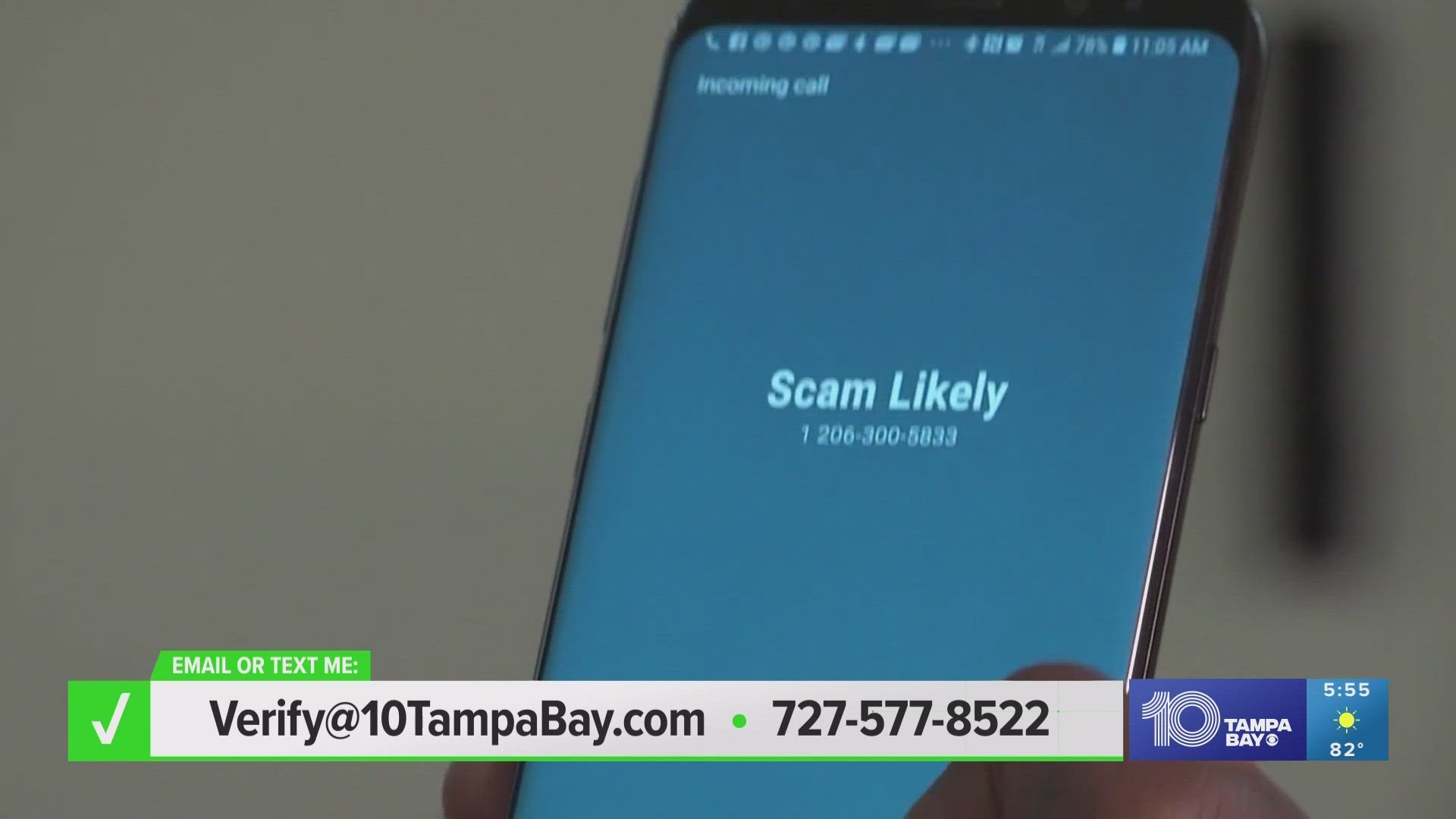ST. PETERSBURG, Fla. — Since the start of this year, more than a dozen VERIFY viewers have sent questions to 10 Tampa Bay about messages or calls they've received saying they've won a major prize from a Publishers Clearing House (PCH) sweepstakes.
To these viewers, it sounded too good to be true. However, the person on the other side of the conversation claims to be a real PCH employee. Adding to the confusion, Google searches reveal actual PCH employees with those names.
Many of those who engage with these messages and calls say they've been told they need to send a pre-payment to claim the prize.
So VERIFY compiled the common red flags to help you confirm whether you're the target of a scam to avoid your personal information falling into the wrong hands.
THE QUESTION
Does Publishers Clearing House notify winners by email, phone call or Facebook message?
OUR SOURCES
THE ANSWER
No, Publishers Clearing House will never email, call or message you on social media to tell you that you've won a major prize.
A major prize is considered any winnings that are at least $10,000.
WHAT WE FOUND
Scammers have been impersonating Publishers Clearing House for years. Despite continued coverage and awareness campaigns to protect people's private information, the scam has persisted and adopted new ways to appear more real.
It's become so persistent that PCH has an entire webpage dedicated to "fraud protection," as a place people can go if they're suspicious they've become the target of a scam.
On that webpage, PCH says it will "NOT send e-mails notifying customers that they have won a major prize [sic]."
A blog post from the company in 2022 also clarified that PCH will never notify customers through text, private messages on social media, or by sending a check in the mail.
"PCH never does any of those things, so that's how you can recognize it's a scam," the post read.
If you win a major prize from PCH, the company says the Prize Patrol will deliver the check to your doorstep, in person and unannounced.
Chris Irving, the vice president of consumer and legal affairs at PCH, said that PCH sometimes sends mail to major prize winners in the rare instance that they are unable to track down a winner or if travel schedules create a conflict for Prize Patrol members, but PCH would never send a check in the mail.
"When we do reach out by mail, we include certain information that would allow the consumer to verify they are dealing with the real PCH," he told VERIFY. "We hesitate to provide that publicly as we know that the imposters would try hard to replicate [it]."
Irving said certain things would never be included in a letter from PCH, which consist of the following:
- An ask for any fee, tax or payment to collect a prize
- An ask for your banking information
- A statement that you should keep news of the win "confidential" or not disclose it to a loved one
- Any talk about an "agent" or designated representative who is to handle your win
If you get a letter claiming to be from PCH that includes any of those things, Irving said that's a "sure sign of a scam."
The United States Postal Service has encouraged people who get letters from PCH to call the company's customer service department directly to confirm they've won. They warn not to call the phone number listed in the letter, in case it puts you on the phone with the scammer. The official phone number is listed here on the PCH website.
Still, scammers have found ways to distract people from red flags.
Ron, a truck driver from Arizona, told VERIFY he was first contacted by a personal friend on Facebook about the ability to claim money from PCH. The friend told him to message a PCH "agent" named "Kingsley bosswell" to apply for the money.


Ron shared other screenshots of his messages with the "Kingsley bosswell" profile on Facebook, which is listed as a Facebook page for a government organization. After messaging back and forth, Ron said he started to feel like he may be the target of a scam, and that his friend's Facebook page was likely hacked. He said after messaging his friend certain questions only they could truly answer, he knew to stop interacting with their page and the "Kingsley bosswell" page.
Another Facebook page for "Kingsley Bosswell" features a profile picture of the same man. VERIFY uploaded the picture into Google's reverse image search tool, which reveals the photo is actually of current Rhode Island Governor Dan McKee.


In 2023, the Federal Trade Commission warned that scammers have recently been using social media to take advantage of their targets. Between January 2021 and June 2023, "more money was reported lost to fraud originating on social media than by any other method of contact," according to the FTC.
In addition to impersonating Publishers Clearing House as a company, scammers also use the names of real PCH employees in interactions with their targets. PCH says scammers do this to gain the trust of the people they target but clarifies that "PCH employees would never contact you personally or in advance to notify you of a prize award."
The company warned that scammers commonly impersonate members of the PCH Prize Patrol, specifically: Dave Sayer, Howie Guja and Danielle Lam.
Here is a list of other names of PCH employees used by scammers who contacted VERIFY viewers:
- Andrew Goldberg, President and CEO
- Todd Sloane, former Senior Vice President
- Deborah Holland, Executive Vice President
If you are contacted by anyone using these names, or any name while claiming to be your personal "agent" who will facilitate your prize delivery, PCH says it is a scam.
In 2018, the Better Business Bureau compiled a report on sweepstakes and prize fraud, finding that many targets respond to messages claiming they've won a major prize out of curiosity, not thinking it could lead to any harm. Many VERIFY viewers told us they spoke with scammers for a short time before realizing it was likely a scam and ending the interaction. They said they still would be contacted by scammers, in some cases getting several phone calls from different numbers, even after they stopped responding or answering phone calls.
If you believe you've been contacted by a scammer posing as PCH, you can report it to the company using this link. PCH says it forwards all reports to the Federal Trade Commission.

